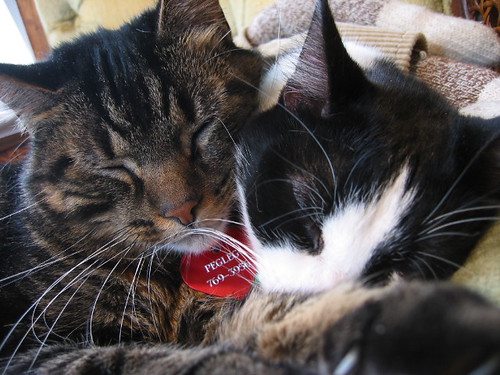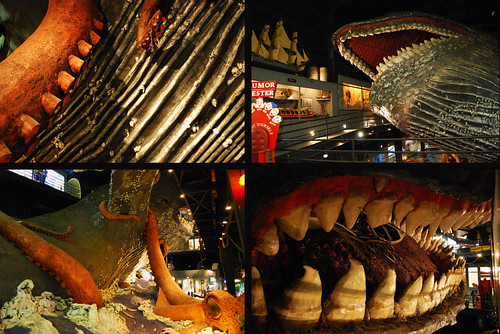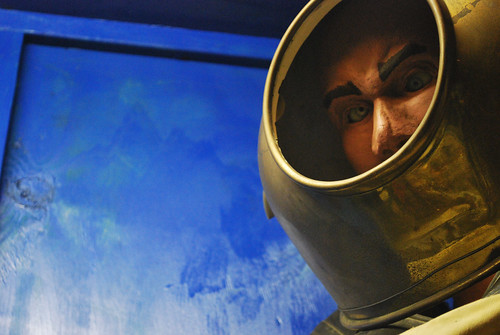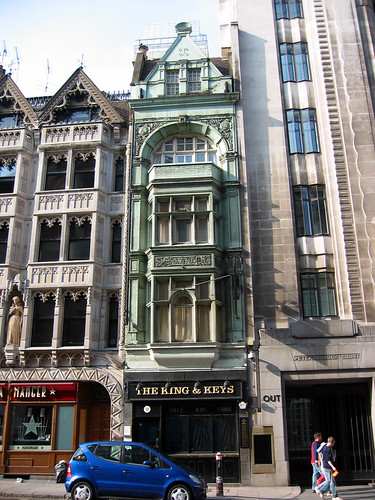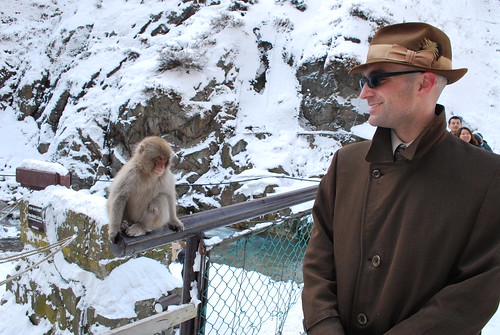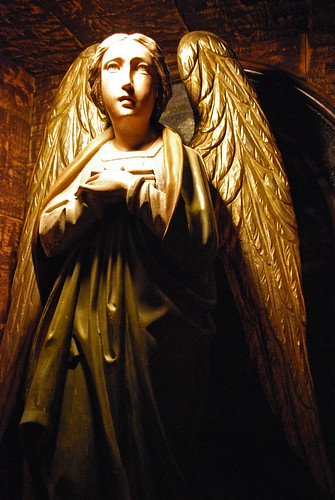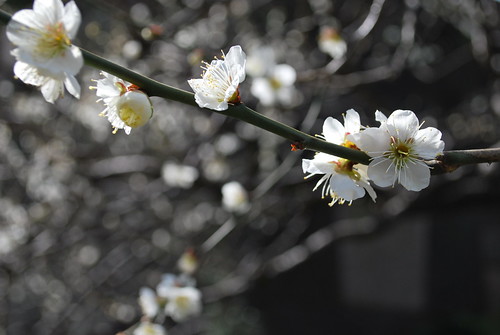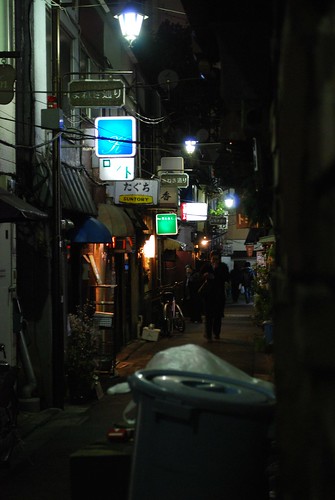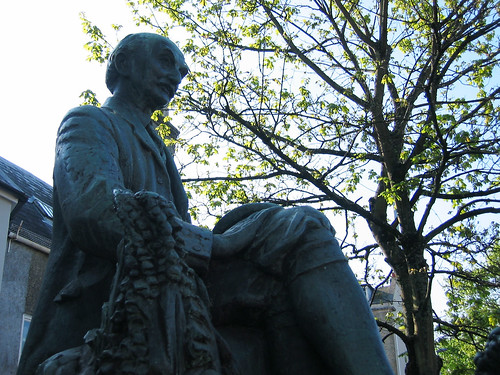
{Photo by rocketlass.}
Though I almost exclusively buy my books new--my neat streak working in tandem with a desire to support publishers and authors--once in a while a used bookstore will offer up an utterly unexpected treasure, a book I might never have come across in decades of glancing through bibliographies and following recommendations from bloggers.
Sunday was one of those days: after seeing my friend Carrie Olivia Adams read from her new book of poems, Intervening Absence, at Myopic Books, I wandered to the criticism section, where in search of Hazlitt, I happened instead to find a slim volume entitled Talks with Thomas Hardy. Published by Vere H. Collins in 1928, two years after Hardy's death, it was (inexplicably) reprinted in cloth by Duckworth in 1978, and for a mere $6 I was able to take it home. Callooh, callay, indeed!
As Collins explains in his introduction, he was more or less a nobody: he became of fan of Hardy's novels as an undergraduate, then a fervent believer in Hardy's poetry after the Great War, and,
For many years I had felt as Browning felt about Byron when he said that he would "at any time have gone to see a curl of his hair or one of his gloves."So in 1920, out of the blue, Collins wrote to Hardy, praising his poetry and asking for a short interview. To his surprise, Hardy wrote back days later inviting him to Max Gate; a series of visits followed over the next two years.
Why did Hardy grant this total stranger, who came bearing no credentials or introduction, access to his house and person? Collins traces it, convincingly, to his stated preference for Hardy's poetry over his fiction; though Hardy's poetry has plenty of partisans now, at the time it was still comparatively neglected, his decision to eschew fiction still considered unfortunate. The resulting conversations--in which the second Mrs. Hardy, less odd but possibly more possessive than the first Mrs. Hardy, participated--are at times remarkably light, but in their focus on the poetry and their unguardedness they offer many pleasures.
As I've done with the more extensive (and much more expensive!) volume Thomas Hardy Remembered that Ashagte put out a couple of years ago (and in which Collins doesn't figure), I'll almost certainly return to this book over time. For now, I'll share just two brief passages, neither one focusing on the poetry.
First--this one's for DC Cairns--Hardy's take on early cinema's embrace of his novels:
C: I see that Tess is being shown on the films.
H: I was present at a rehearsal of it in the United States.
C: Are others of the novels to be done too?
H: I don't know. I leave all that to Macmillan. My experience of seeing film plays has been unfortunate. There always seem to be motorcars rushing over cliffs and people jumping out of windows. What effect do you think the cinematograph will have on the sale of books?
C: I should have thought that it would appeal to a public that read only sensational novels.
H: I was surprised that people cared for Tess on the film, for it always seems to be mainly young people who go to see the cinematograph. . . .

Hardy's point about the spectacular nature of silent film sounds like something that might have come out of Bertie Wooster's mouth--only, from Bertie, it would have qualified as praise. I wonder how much Hardy's lack of interest in films came from their silence; as a devoted fan of drama, who had enjoyed seeing, and even participating in, performances of his novels, I could imagine him frustrated by the necessary reduction of dialogue and narration to the brevity of intertitles.
Second, I think you'll enjoy what I found on the page I turned to when I first opened the book, a passage that seemed appropriate to a late March weekend that had been honored by the visit of a thundersnowstorm:
C: I was very lucky to have such a fine day after the gale of the night before. When I was here at Easter it was also extraordinarily mild. I remember your husband telling me of some flowers that were out unusually early. He dislikes cold weather very much, does he not?Frozen brains. I think I've identified my problem. But hark! Is that the crack of the bat I hear? The hideous mating call of the umpire? We may just survive this winter after all!
Mrs. H: Yes, he says it freezes his brains.
